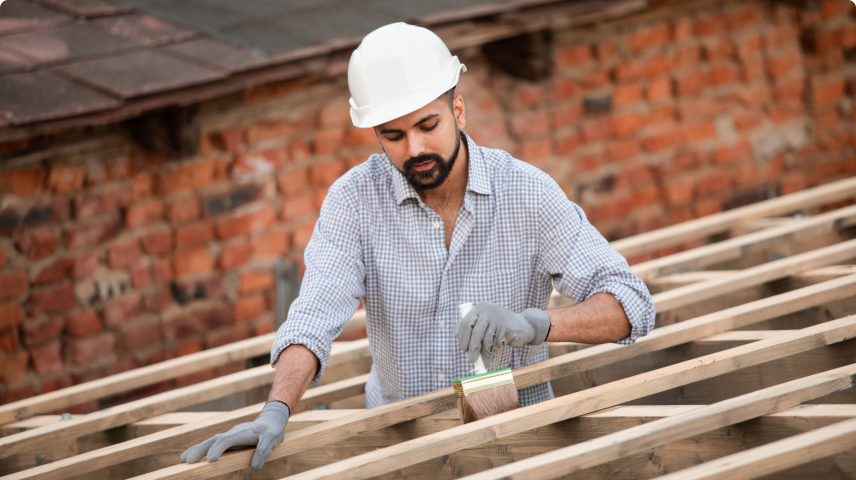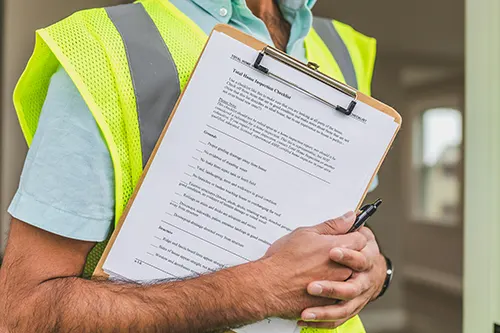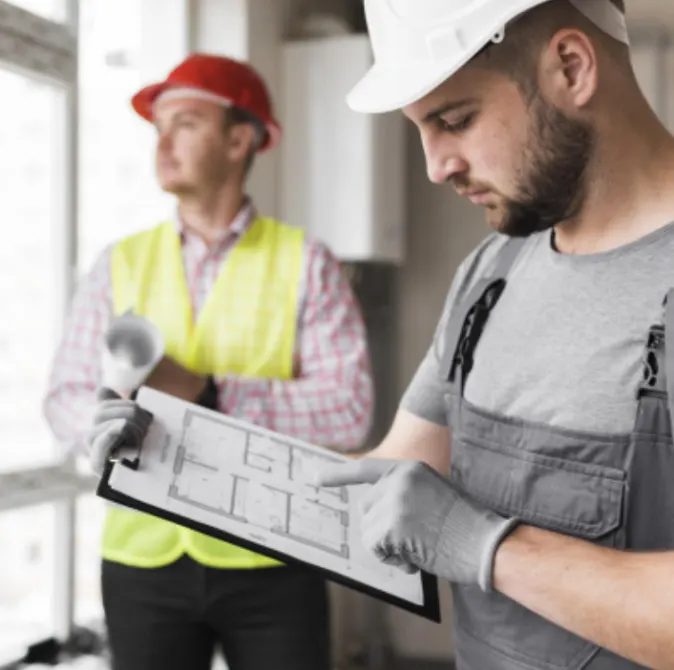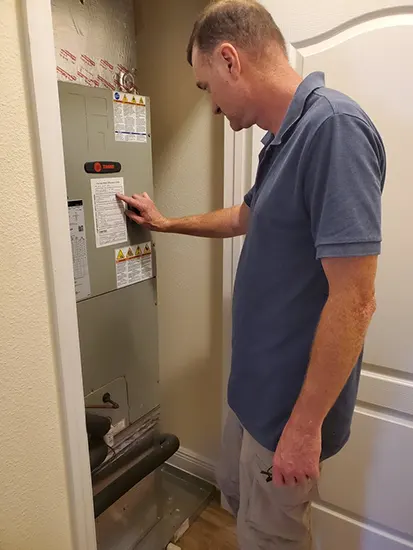Mandatory Fixes Post-Home Inspection: A Guide for Buyers and Sellers
An annual home inspection provides buyers with an unbiased, noninvasive visual examination of a house’s key components, from roof leakage and insulation levels to plumbing problems and HVAC units. Making repairs as necessary a crucial part of the home buying process, knowing which repairs qualify as mandatory fixes post-inspection can save time, money, and headaches for both buyers and sellers.
Understanding Mandatory Fixes Post-Home Inspection
After receiving the home inspection report, many buyers feel uncertain about which issues require immediate attention. Not all repairs are equal — some are cosmetic, while others are safety-related and legally enforceable mandatory fixes post sale or purchase.
For example, cosmetic issues like stained carpets or decks needing staining may not compel sellers to act. Conversely, problems such as leaking water heaters, roof leaks, electrical hazards, or damaged structural components are classic mandatory fixes post inspection that must be resolved to avoid jeopardizing the sale or the home’s safety.
Legal and Lending Perspectives on Mandatory Fixes Post-Inspection
Although sellers aren’t always legally bound to fix issues uncovered in inspections, mortgage lenders and insurance companies frequently require certain repairs before loan approvals or policy issuance. Repairs that impact safety, habitability, or compliance with local building codes often become mandatory fixes post inspection, including:
-
Trip hazards and missing safety railings
-
Faulty electrical wiring and outdated systems
-
Damaged chimneys or roofing issues
-
Plumbing leaks posing health risks
Buyers should work closely with their real estate agents during negotiation, focusing on these mandatory fixes post report to ensure fair and timely remediation.
Navigating Negotiations and Repair Requests
Negotiations after an inspection report can range from easy agreements on critical fixes to more complex discussions about cosmetic or minor issues. Knowing which requests qualify as mandatory fixes post inspection empowers buyers to prioritize safety and habitability while understanding when compromises might be appropriate.
Sellers who agree to complete mandatory fixes after inspection can often accelerate the sale process, avoiding delays at closing. In contrast, if a seller declines necessary repairs, buyers have options, including renegotiation, requesting repair credits, or, in some cases, withdrawing offers and retrieving deposits.
Prioritizing Mandatory Fixes Post-Inspection
When reviewing the findings, it’s crucial to categorize repairs into mandatory and optional:
-
Safety Concerns: Addressing electrical issues, structural integrity, mold, lead paint, or radon exposure typically cannot be postponed.
-
Structural Integrity: Repairs related to foundations, framing, roofing damage impact long-term livability and financing and require immediate attention.
-
Non-Essential Repairs: Cosmetic defects such as worn carpets or cracked paint generally fall outside the scope of mandatory fixes post inspection.
Buyers and sellers should engage qualified contractors or inspectors to assess these repairs’ urgency and cost implications, ensuring that funds and efforts focus on the right areas.
Repair Credits vs. Completion of Mandatory Fixes Post-Inspection
Sometimes sellers prefer offering a credit at closing rather than completing repairs themselves. This approach allows buyers to manage the mandatory fixes post inspection according to their priorities after possession. While this can be mutually beneficial, open communication remains essential to avoid surprises during closing or move-in.
This credit can reduce buyers’ upfront cash requirements, particularly when multiple mandatory repairs could otherwise destabilize financing terms.
DIY or Professional to Address Mandatory Fixes Post-Inspection?
Not all repairs require professional intervention, but many mandatory fixes post inspection do. Safety-related issues involving electrical, plumbing, or structural elements almost always require licensed professionals. Minor cosmetic enhancements may suit confident DIYers but should never compromise home safety or code compliance.
Understanding which repairs to delegate is critical to managing post-inspection responsibilities effectively.
How Gulf View Inspections Supports You Through Mandatory Fixes Post-Inspection
Gulf View Inspections provides expert guidance to buyers and sellers on navigating the often challenging process of mandatory fixes after home inspections. Our detailed reports and consultations help prioritize repairs, negotiate fairly, and ensure compliance with lender and legal requirements.
Partnering with Gulf View means you gain clarity and confidence so you can move forward smoothly, whether addressing repairs yourself or working with contractors.
Common Challenges and Solutions When Handling Mandatory Fixes Post-Inspection
Navigating mandatory fixes post-home inspection can present several challenges for both buyers and sellers. Understanding these challenges and how best to address them can make the entire transaction smoother and less stressful.
Challenge 1: Disagreement Over Repair Responsibility
One frequent stumbling block arises when buyers and sellers disagree on who should bear the cost of mandatory repairs. Buyers often expect sellers to fix all issues flagged by the inspection, yet sellers may feel some are the buyer’s responsibility, especially if they regard certain issues as cosmetic rather than essential.
Solution: Clear communication and negotiation guided by professional real estate agents can help parties agree on repair responsibilities. Using the inspection report as an objective baseline makes it easier to agree on which repairs are mandatory and which are discretionary.
Challenge 2: Cost Estimation and Budget Constraints
Determining the cost of repairs can sometimes be difficult, especially if extensive work is required. Accurate estimates are crucial for negotiation and budget planning but can be time-consuming to obtain.
Solution: Buyers and sellers should enlist qualified contractors or inspectors for repair quotes early in the negotiation process. This transparency prevents surprises later and allows both parties to make informed decisions about repair negotiations or price adjustments. Gulf View Inspections can assist in clarifying which repairs are critical to safety and habitability, helping focus budgets effectively.
Challenge 3: Time Constraints and Deadlines
Home sales often operate on tight timelines, and significant mandatory repairs post-inspection can risk delaying closing dates. For sellers especially, balancing repair schedules and buyer expectations can become a logistical challenge.
Solution: Planning ahead and setting realistic timelines for mandatory repairs is essential. When appropriate, sellers can negotiate alternatives like repair credits or price reductions, giving buyers the option to manage repairs after closing. Open discussion about timelines helps avoid misunderstandings and keeps the sale on track.
 Understanding Different Levels of Mandatory Fixes Post-Inspection
Understanding Different Levels of Mandatory Fixes Post-Inspection
Not all mandatory repairs carry the same urgency or complexity. It helps to understand the different levels to prioritize actions effectively:
Immediate Fixes
These are issues that pose immediate threats to safety or structure, requiring urgent resolution. Examples include active leaks, exposed wiring, foundation cracks compromising stability, or malfunctioning smoke detectors. Lenders and insurers may refuse financing or coverage until these are fixed.
Mid-Term Fixes
Repairs that are important but not immediately dangerous fall here. Examples might include deteriorating roof shingles, HVAC system inefficiencies, or plumbing leaks that don’t yet cause water damage. While not urgent, addressing these repairs promptly avoids escalating costs or complications.
Optional Fixes
These are cosmetic or functional improvements not mandated by codes or lenders. Examples include repainting, replacing worn carpet, or upgrading fixtures. Though not mandatory, completing some optional fixes might improve property appeal and buyer satisfaction.
The Role of Documentation in Mandatory Fixes Post-Inspection
Proper documentation plays a crucial role throughout repairs following a home inspection:
-
Inspection Reports detail findings and recommendations, forming the basis for negotiation and repair prioritization.
-
Repair Receipts and Permits confirm that mandatory fixes post-inspection were completed by licensed professionals in compliance with local codes.
-
Follow-up Inspection Reports (if applicable) verify that repairs meet required standards.
This documentation is useful for buyers, sellers, lenders, and insurers, assuring all parties that necessary steps have been taken to protect safety, value, and compliance.
Preventive Measures to Minimize Future Mandatory Fixes Post-Inspection
While mandatory fixes post-inspection are sometimes inevitable, proactive maintenance can minimize unexpected costly repairs in the future:
-
Schedule regular home maintenance and inspections to detect issues early.
-
Keep records of repairs and system upgrades to demonstrate property care.
-
Address small repairs promptly to prevent escalation.
-
Familiarize yourself with local building codes and safety requirements to stay compliant.
Such preventive strategies contribute to smoother future sales and better home longevity.
How Buyers Can Protect Themselves During Mandatory Fixes Post-Inspection
Buyers can increase their confidence in a property purchase by following best practices related to mandatory fixes post home inspections:
-
Review the inspection report carefully with your real estate agent and licensed contractors.
-
Prioritize repairs affecting safety, structure, and financing eligibility.
-
Negotiate repair terms or credits with sellers based on professional advice.
-
Consider including inspection contingencies in your offer to allow withdrawal if repairs are refused or unreasonable.
Being informed and proactive allows buyers to safeguard their interests and make sound investment decisions.
How Sellers Can Successfully Manage Mandatory Fixes Post-Inspection
Sellers can avoid surprises and reduce transaction friction by:
-
Obtaining a pre-listing inspection to identify and address mandatory repairs upfront.
-
Being open and transparent about property condition to build buyer confidence.
-
Budgeting for likely mandatory fixes as part of the sales plan.
-
Negotiating in good faith and considering repair credits as flexible solutions.
Proactively managing mandatory fixes post-inspection helps accelerate closings and foster positive buyer-seller relationships.
The Critical Role of Gulf View Inspections in Mandatory Fixes Post-Home Inspection
At Gulf View Inspections, we understand the complexities that arise after a home inspection report is delivered. Our team conducts thorough, unbiased evaluations and offers expert advice to help prioritize mandatory fixes post-inspection. Whether you’re buying or selling, we provide clarity on which repairs impact safety, compliance, and financing eligibility.
We assist clients in navigating negotiations and making informed decisions, ultimately ensuring that all necessary repairs support a smooth transaction. Partner with Gulf View for accurate inspections, professional insights, and peace of mind throughout your home buying or selling journey.
Final Thoughts: Making Sense of Mandatory Fixes Post Home Inspection
Mandatory fixes post-home inspections represent an essential phase in the home sale process, ensuring that properties meet safety, legal, and lender requirements. While the negotiation and repair process can feel daunting, understanding your obligations and options transforms it into a manageable task.
By prioritizing safety and habitability, conducting transparent negotiations, and leveraging professional expertise like Gulf View Inspections, both buyers and sellers can protect their investment, avoid costly surprises, and move confidently toward closing and beyond.
Contact Gulf View Inspections today if you’re about to embark on this process or want expert guidance on mandatory fixes post-home inspections. Our reliable services help you transform inspection knowledge into action and peace of mind.
Conclusion: Turning Inspection Results Into Smart Home Decisions
The home inspection is just the beginning of your journey. Understanding and successfully navigating mandatory fixes after inspection is critical for protecting your investment and ensuring a safe home environment. From knowing which repairs are essential to negotiating smartly with sellers, this knowledge empowers you to make informed, confident decisions.
Ready to take the next step? Schedule your home inspection with Gulf View Inspections today and gain the insights you need for a successful home buying or selling experience.



 Understanding Different Levels of Mandatory Fixes Post-Inspection
Understanding Different Levels of Mandatory Fixes Post-Inspection